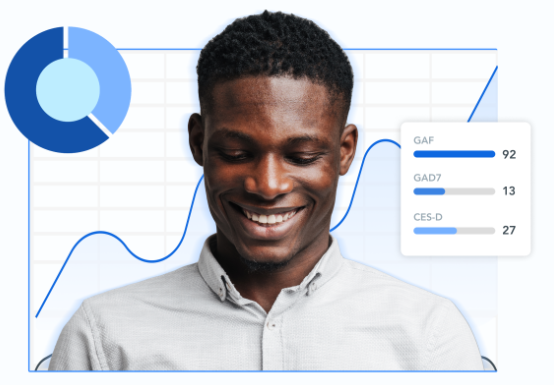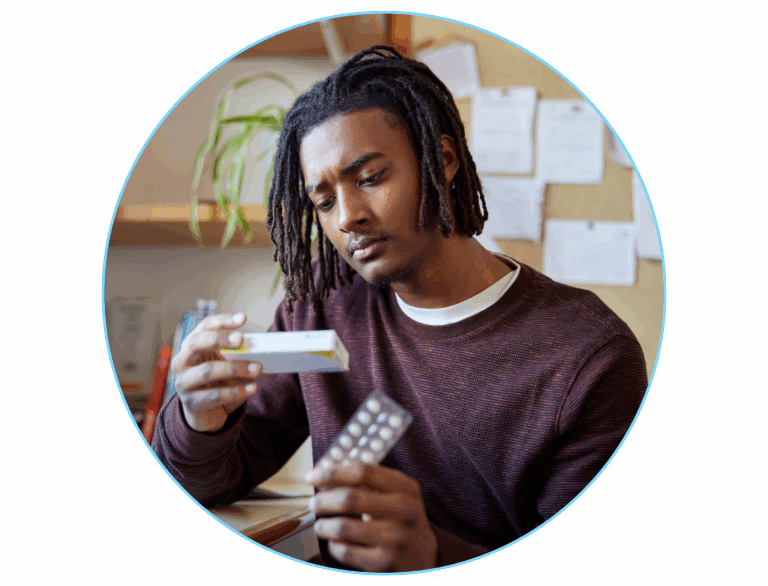Atomoxetine/Strattera
TYPE OF MEDICATION:
Atomoxetine is a selective norepinephrine reuptake inhibitor (NRI) that is used primarily for the treatment of ADHD. Unlike stimulant medications, it does not increase dopamine levels in the same way as amphetamines or methylphenidate-based drugs, making it a non-stimulant option for ADHD treatment.
TREATMENT FOR:
ADHD (attention-deficit hyperactivity disorder) in children, adolescents, and adults, off-label use for anxiety disorders, off-label use for depression (as an adjunct)
How it works
At Platinum Psychiatry, our clinicians focus on prescribing the right medication tailored to your needs. As part of your treatment, they may recommend atomoxetine and will walk you through how it works while addressing any questions you have.
Data-Driven Prescriptions

Data-Driven Prescriptions
have a question?
Treatment Uses, Side Effects, and Key Information
What is atomoxetine/strattera, and how does it work?
Atomoxetine is a non-stimulant ADHD medication that works by increasing norepinephrine levels in the brain. Norepinephrine is a neurotransmitter involved in attention, focus, and impulse control. Unlike stimulants, atomoxetine does not directly impact dopamine levels in the same way, making it less likely to cause dependency or abuse.
What conditions does atomoxetine treat?
Atomoxetine is FDA-approved for the treatment of ADHD in children, adolescents, and adults. It is also prescribed off-label for anxiety disorders and as an adjunct for depression.
What symptoms can atomoxetine help reduce?
- Inattention and difficulty focusing
- Impulsivity and poor self-control
- Hyperactivity and restlessness
- Difficulty completing tasks and staying organized
- Emotional dysregulation (to a lesser extent than stimulants)
Will atomoxetine work for me?
Atomoxetine is a good option for individuals who do not tolerate stimulant medications or who have a history of substance abuse, as it does not have the same addictive potential as stimulant ADHD medications. However, it may take several weeks to show full effects, and some individuals respond better to stimulants.
How long do people typically take atomoxetine?
Atomoxetine is often taken long-term for ADHD management. Unlike stimulants, which may be used on an as-needed basis, atomoxetine must be taken daily to be effective.
How effective is atomoxetine?
Studies show that atomoxetine is effective for reducing ADHD symptoms, though it is generally considered less effective than stimulant medications. However, its longer-lasting effects, non-addictive nature, and lower abuse potential make it a preferred option for some individuals.
Will atomoxetine change my personality?
Atomoxetine is not designed to alter personality, but it helps regulate focus, impulse control, and attention. Some people may experience emotional changes, especially when adjusting to the medication.
Are there any side effects associated with atomoxetine?
Common side effects include:
- Nausea and stomach pain
- Decreased appetite
- Fatigue or drowsiness
- Increased heart rate
- Insomnia
Rare but serious side effects:
- Increased risk of suicidal thoughts in children and adolescents
- Increased blood pressure
- Liver toxicity (very rare)
Does atomoxetine have withdrawal symptoms?
Atomoxetine does not typically cause withdrawal symptoms because it does not affect dopamine in the same way as stimulants. However, stopping suddenly may lead to a return of ADHD symptoms or mild discomfort.
Can I take atomoxetine while pregnant or while nursing?
Atomoxetine is classified as Pregnancy Category C, meaning that its safety in pregnancy is not well established. It is unknown whether it passes into breast milk, so caution is advised for breastfeeding mothers.
Is atomoxetine addictive?
Atomoxetine is not considered addictive and does not have the same abuse potential as stimulant medications like Adderall or Ritalin.
What does the FDA say about atomoxetine?
The FDA has approved atomoxetine for ADHD treatment in both children and adults. It carries a black box warning about an increased risk of suicidal thoughts in children and adolescents and advises monitoring for mood or behavioral changes.
741-741
If you’re in emotional distress, text HOME to connect with a counselor.
988
Call or text the 988 Suicide & Crisis Lifeline for 24/7 emotional support.
911
If you’re having a medical or mental health emergency, call 911 or visit your local ER.

